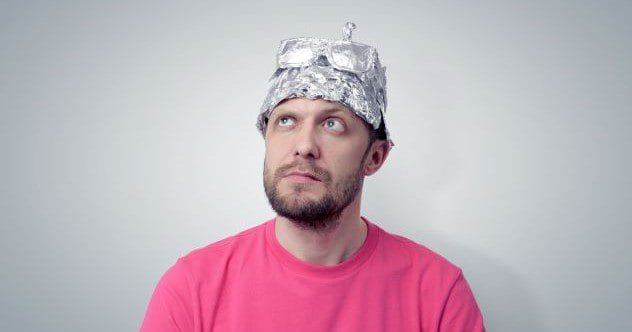Conspiracy theories are not a new phenomenon. Throughout history, people have been captivated by secret groups and powerful figures, and the United States is no different. Even in the early 1800s, many conspiracy theories circulated throughout America, fueled by political rivalries and societal anxieties.
These theories often centered on significant issues like slavery, while others were simply bizarre and baseless. Let’s delve into ten of the most outlandish conspiracy theories from 19th-century American politics. Get ready to question everything as we explore these unfounded allegations and sketchy claims.
The Genesis of American Conspiracy Theories
The proliferation of conspiracy theories in early America was closely linked to the country’s evolving political landscape. The emergence of competing political parties created an environment ripe for suspicion and distrust. Accusations of secret plots and hidden agendas became common tactics as parties vied for power. This era also coincided with significant social and economic changes, including debates around slavery, immigration, and religious identity. These shifts created fertile ground for conspiracy theories to take root and spread.
10 The Early Illuminati
In the years following the American Revolution, political factions began accusing each other of clandestine plots. A key figure in this was Jedidiah Morse, a Massachusetts minister, who preached that the “Bavarian Illuminati” had infiltrated American society. He claimed they aimed to overthrow the government and dismantle Christianity, likening them to the Jacobins in France. Morse even implicated Thomas Jefferson and his political party as part of this Illuminati conspiracy. Though the fervor eventually subsided, the belief in a malevolent Illuminati presence persists even today. [1]
9 The Know Nothing Party of Protestants
In the early 19th century, a nativist group emerged, claiming “pure” Anglo-Saxon heritage. Known as the “Know Nothing” party because members feigned ignorance when questioned about the group, they believed Catholic immigrants threatened American society. They spread rumors of heinous crimes committed by Catholic representatives, accusing them of allegiance to the Pope and plotting to destroy Protestant America. This led to restrictive laws against immigration and limited opportunities for new arrivals. [2]
8 The Order of the Star Spangled Banner
The Know Nothing party evolved into the Order of the Star Spangled Banner by the 1850s, gaining significant political influence. They targeted Irish Catholics, German immigrants, and women’s suffragists, fostering fear and anger. Their actions included church burnings and violent gang activity. However, their foundation was unsustainable, and their avoidance of the slavery issue contributed to their downfall. The party’s vision of a United States populated only by “pure” white Protestants proved unattainable, leading to its decline. [3]
7 Slavery Conspiracy Theories Thrived
In the lead-up to the Civil War, the South was rife with political conspiracies. Southerners believed abolitionists were colluding with the British government to destroy American democracy and abolish slavery. They branded Republicans as “Black Republicans” plotting to outlaw slavery. Despite limited evidence, these conspiracies were used to justify secession. Mississippi senator William Harris claimed his state would never submit to the Republican administration’s principles, fueling tensions and contributing to the outbreak of the Civil War. [4]
6 Abolitionists Bought Conspiracy Talk Too
Anti-slavery abolitionists had their suspicions, too. They believed in the “slave power” conspiracy, alleging that slave owners had infiltrated all levels of government to normalize their way of life. This conspiracy fueled the divide between the North and South, uniting disparate groups against the perceived growing power of slaveholders. Some alleged the president himself was either a conspiratorial southerner or too weak to resist their influence. These suspicions contributed to the rise of the Republican Party in the 19th century. [5]
5 Conspiracy Led to Secession
As tensions over slavery escalated, conspiracies gained traction. The election of Abraham Lincoln triggered the secession of South Carolina and other states. Secession declarations revealed that conspiracies played a role in the country’s breakup. Texas claimed the North sent emissaries to undermine Southern culture, poison water supplies, and commit arson. These claims, though unlikely, contributed to the country’s violent fracture. Despite Lincoln’s desire for reconciliation, conspiratorial claims fueled the divide. [6]
4 Slave Rebellions Became Conspiracy Hotbeds
Slave owners feared a slave rebellion, mindful of the Haitian Revolution. Conspiracy theories about abolitionist actions further fueled this fear. Rumors spread after John Brown’s failed attempt to incite an uprising in Virginia. Slave owners imagined well-organized slaves seeking bloody revenge, leading to increased mistreatment. Despite the Emancipation Proclamation of 1863 and subsequent history, this fear persisted among slaveholders. [7]
3 Lincoln’s Assassination Was Conspiracy Catnip
Abraham Lincoln’s assassination sparked numerous conspiracy theories. Suspicions arose that the plot extended beyond John Wilkes Booth and his associates. Theories suggested Confederate President Jefferson Davis and Confederate Secretary of State Judah P. Benjamin were involved. Some even implicated anti-Lincoln European bankers, Catholics, or Irish Americans. Union officials were also suspected. Despite these theories, the consensus remains that Booth and his associates were responsible, forever altering American history. [8]
2 Later Conspiracies Even Fooled Presidents
Conspiracy theories persisted after the Civil War. In the late 19th century, a conspiracy fooled President James Garfield. After Charles Guiteau shot Garfield, doctors’ unsterilized procedures led to a massive infection. Doctors issued cheerful reports to bolster public confidence, but Garfield eventually died. The subsequent death announcement sparked new conspiracies about Garfield’s true condition prior to his passing. [9]
1 One Final Conspiracy to End the 19th Century
Conspiracy theories have severe consequences, inciting wars and alienating groups. The Chinese Exclusion Act of 1882 restricted immigration from China, driven by worries that Chinese workers threatened society and the economy. Proponents claimed Chinese immigrants would harm America through disease and erosion of the American way of life. This discriminatory act reflected years of prejudice and fear, highlighting how conspiracy can justify discriminatory policies. [10]
The Enduring Legacy of Conspiracy Theories
These ten conspiracy theories from early American history illustrate the power of unfounded claims to shape public opinion and influence events. From fears of secret societies undermining democracy to anxieties about immigration and social change, these theories reveal a recurring pattern of suspicion and distrust in American society. While these specific conspiracies may seem outlandish today, their themes continue to resonate in contemporary discussions about politics, culture, and identity.
By examining these historical examples, we can gain a better understanding of the psychological and social factors that contribute to the spread of conspiracy theories and their potential impact on society.
Which of these conspiracy theories did you find the most surprising? Leave your comment below!










